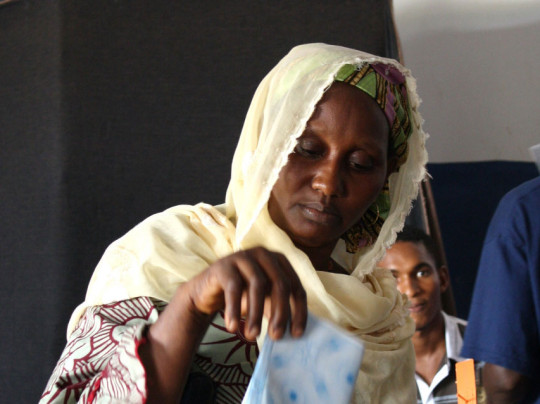 While Guinea holds its collective breath awaiting the Presidential election results, one thing is inevitable: violence will ensue.
While Guinea holds its collective breath awaiting the Presidential election results, one thing is inevitable: violence will ensue.
Land Reform & Ethnic Tensions
Land claims and ethnic tensions have been part of Guinea’s social landscape since the early 1990’s and the basis for altercations between the Konainke’ people and other indigenous groups in the Forest Region. Increased ethnic tensions and violence are a direct result of the “rational” land use policies implemented by former President Toure’. Land reform policies enabled the ethnic Konainke’ to occupy large areas of land in the Forest Region of Guinea, which aggravated existing ethnic tensions between the native Forestiere communities and the Konainke’, who are viewed as outsiders. Disputes follow traditional ethnic lines, however, sectarian differences compound the ethnic fissures; most Konianke’ are Muslim, while Forestiere communities are predominantly Christian.
The conflict between the Guerze’ and Konianke’ communities reached new heights in July 2013 when a security guard in Koule’ killed a Konianke’ youth who he mistook for a thief. Violent clashes between the two communities spread to neighboring villages as far as 45 km away in N’Zerekore’ leaving more than 100 people dead and churches, mosques, and properties destroyed. Violence increased when conflicts in neighboring Sierra Leone and Liberia spilled over into Guinea’s Forest Region bringing with them experienced fighters from rebel groups and their weapons.
Foreign Investment & the Youth bulge
Investments by foreign mining companies and a population youth bulge compound the social risks within Guinea. The mining industry has created dependencies on mineral extraction in what was formerly an agrarian-based society. Mineral extraction has benefitted a few individuals and communities leaving the majority angry and impoverished. Guinea’s untapped iron ore reserves are the largest in the world, yet it is one of the most impoverished countries in West Africa. Moreover, the population (45% of 11 million are between the ages of 15 and 19) is largely unemployed due to continued conflicts. Those conflicts, in turn, have created hesitancy on the part of foreign mining investors whose sites have been the target of violence.
In response to the violence, several foreign mining companies, particularly European ones, have already left the country due to mining reforms and the general insecurity across mining sites. The Zagota mining site has been a particular area for violent clashes. An amended mining code, intended to re-negotiate contracts and improve the transparency of the contract awarding process, has resulted in a government vs. BSG Resources dispute that is on-going. BSG has been accused of bribing officials in order to secure half the Simandou mining fields while the government has been accused of illegally confiscating and nationalizing the mines.
Politics
In the 1960’s current President Conde’ was a student leader critical of the dictatorial regime and was exiled as a result. He left and took a professorship, in politics, at the Sorbonne in Paris. In his absence he was sentenced to death for his criticisms of Guinea’s first President. The second President imprisoned Conde’ for the same offense. Despite that, in 2010, he won the first democratic election in the history of Guinea. International observers were invited to observe the elections (those observers included representatives from the Carter Center) and concluded that the elections were fair and credible.
When Conde’ was elected in 2010 he promised to re-negotiate mining contracts, however, that promise threatened established interests and many did not accept the results of his election. Violent protests broke out and escalated in the capital, Conakry, and spread to other parts of the country. In 2011 gunmen stormed Conde’s residence in a coup attempt apparently orchestrated by the military. The Chief of Armed Forces and the Head of the Treasury (known for his anti-corruption stance) were assassinated. In the upcoming elections Conde’ faces opposition from prior dictatorial regimes.
Conclusion
Guinea’s social risks will not abate with a Conde’ victory. Ethnic grievances driven by land reform and reinforced by sectarian ideology, will continue to divide the population. Stability lies within Guinea’s population. Successful non-aggression packs that have resulted in communities avoiding the violence are the blueprint. These pacts should be broadened and include public and private sector initiatives as well as extending mediation efforts to create a foundation for enduring peace. If any combination of political opposition, armed forces, and mining companies align themselves against the Conde’ government, even if he wins as predicted, there will be increased violence and a potential coup attempt.

